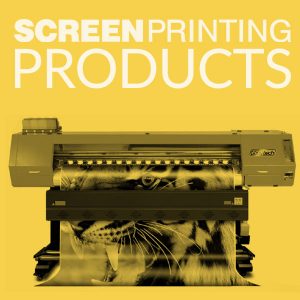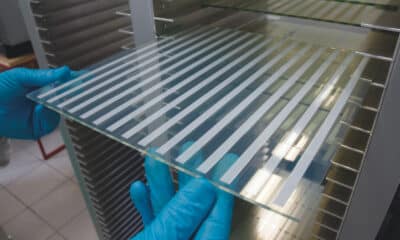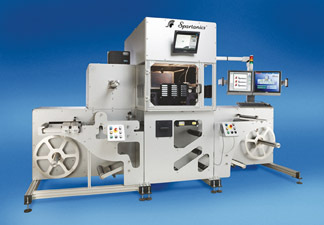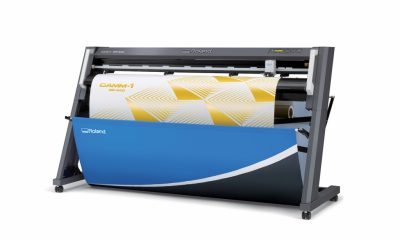Graphics Printing
Published
17 years agoon
OK, America, it’s time we all started acting like the mature screen-printing industry that we are. If we don’t, then we are going to get our proverbial butts kicked big time.
I just returned from a business trip to Germany, where I visited a run-of-the-mill graphics company located just outside of Frankfurt. The company specializes in signage and vehicle graphics. It didn’t take me very long to realize that if this company were to relocate to just about any market in the US, it would soon steal most of the business available. Believe me, there are very few shops in the US that could compete with the level of quality that this company’s highly trained staff produced on its state-of-the-art equipment. It was quite an eye opener for me and quite disconcerting to discover that most print shops in Germany operate in a similar manner.
German efficiency is famous worldwide. Here in the US, our excuse is that it is not in our nature to function the way that Germans do. Americans bring creativity and a “get it done” mentality to the table, which is lacking elsewhere in the world. Well, it turns out that the shop I visited in Frankfurt actually is owned and operated by an American expat. I hope that when he decides to return to his homeland, he doesn’t set up shop in your town. You’re in a lot of trouble if he does.
Let’s backtrack a little. The reason I visited Frankfurt was for Musikmesse, the largest musical instrument convention in the world. Apart from my activities in the screen-printing world, I am also part owner of a business that manufactures high-end archtop jazz guitars. My German distributor and I exhibited the guitars at Musikmesse. My distributor had taken care of the booth design, and I was knocked out by the quality of the floor-to-ceiling graphics that a local print shop produced and delivered to us on set-up day. I asked the delivery guys whether it would be possible to take a tour of their shop after the exhibit was over. I wanted to get a feel for the way things get done on their side of the pond. We exchanged cards and arranged for a tour.
When I walked into the shop, the first thing I noticed was how clean everything was. I was informed that the workers religiously spend at least a half hour at the end of each shift restoring their workplace to its original pristine condition. I asked what happens at crunch time, when speed is of the essence. Do they bend these rules a little? Never, I was told, because it’s so much harder to work in an unclean environment. The German tour guide lectured me about the possibility of transferring loose ink to the fingers and then ultimately to the substrates, should this rule be relaxed. I recalled the hundreds of times I had made the same point in the US, only to be ignored. The second thing I noticed was that everyone wore a work jacket. Most jackets were blue, and a few were white. The white coats seemed to be in charge.
Germans maintain a strict hierarchy on the shop floor. All of the workers begin at the bottom, with a blue coat. As they master their craft, over a period of years, they work towards the title of master printer and the right to wear the prestigious white coat. They must attend courses at the local technological college, which cover the theory of screen printing, from the basics of screenmaking to four-color process and beyond. They also learn about shop-floor management, employee management, work scheduling, and all the subjects that we seem to learn at the school of hard knocks. The process takes approximately seven years, and while they are learning, they are referred to as apprentices, not just employees. No screen printer would truly consider himself a printer until he had completed this process. And he understands it will be many more years before he ascends to the level of master screen printer.
The screen-preparation area was yet another revelation. There were roller frames for as far as the eye could see, numbered with pertinent information, including size, tensioning, and thread count, dutifully logged into a computer system. The gentleman in charge showed me how he could plan his work week several days ahead of time and be sure that a certain screen would be ready at a certain time. He showed me his screen-loss chart and said the loss of five screens was considered a bad week. Screens are expensive, he reminded me, and it would be impossible to remain competitive were they to allow this statistic to slide.
There were no nicks or scratches on the exposuremachine glass. The workers are careful to make sure that the screens are placed onto foam pads. There was no degradation of the vacuum blanket because the workers thoroughly clean ink from the frames. I began to think that I had accidentally fallen into the perfect screen-printing shop—the one that I had carried around as a fantasy in my head for so many years. It had always seemed to be just an impractical ideal. So how do you achieve this level of perfection?
I didn’t have the chance to talk with the owner of the shop, but I did manage to pin down one of the white coats and chat over a cup of very strong German coffee and a slice of strudel. What impressed me the most about our conversation was that he seemed to understand the business in a way that you don’t often see in shop supervisors back at home. We discussed everything from press setup to employee satisfaction to the importance of maintaining cash flow to keep the business healthy. They constantly scrutinize every aspect of the day-to-day operations to make the company more efficient. Every employee is trained from day one to think this way.
What impressed me most was the level of calm that seemed to be everywhere on the shop floor. He assured me that it wasn’t always that way, but most of the time it was. All it took was a commitment to following the processes that they had religiously set up and always remembering that what they were doing was governed by the laws of science, not the laws of chaos. Everyone was either an expert or learning to become an expert in his job responsibilities. The novices understood that they were receiving a gift that would become as valuable to them as a degree from a prestigious university would be to an aspiring engineer. In short, they were becoming professionals.
I asked what happens when a customer needs his signs for a convention the following day, all of the presses are booked, two of the best printers are out with the flu, the supply house has sent the wrong mesh, and so on. He smiled at me and nodded his head knowingly.
“First of all, my salesman would have talked to his customer a few weeks back, and hopefully the job would have been scheduled and in the process for a while, allowing us to print it in plenty of time. If it really was a last-minute job, then we would be delighted because we would know that a large premium was being paid, which would make the customer think twice about waiting until the last minute next time.
“If my two best printers are out, there are members of the management team who can step up and do the job for a few days. We also have apprentices that can fill in, if necessary. Most of our workers are cross trained. The mesh is ordered far in advance so I cannot see that this problem would ever occur, but if it did, I would call one of my fellow professionals nearby, and they would extend me a professional courtesy and send me some of their stock to tide me over. Then we all would knuckle under and work until the job is completed. Afterwards, there would be much discussion to find out how this situation occurred in the first place, and we would try very hard to make sure it never happened again. Surely this is the way you do it in America, right?”
I gave him my card and told him to call me if he ever needed my services as a consultant. He thought for a moment and thanked me, but said he couldn’t think of any situation where my skills would ever be needed. It seems that you would not be the only person going out of business were these guys to ever came to your town.
Gordon Roberts has a history in screen-printing production management that spans more than 25 years. He has held supervisory positions in shops that represent a broad spectrum of application areas and markets, including printed electronics, apparel, signage, and retail graphics. Roberts has presented training courses on the basics of screenprinting production and on shop management for the Screentech Institute and is presently a consultant for the screen industry. He can be reached at screenconsult@aol.com.

Subscribe

Magazine
Get the most important news
and business ideas from Screenprinting Magazine.
Most Popular
-

 Art, Ad, or Alchemy2 months ago
Art, Ad, or Alchemy2 months agoF&I Printing Is Everywhere!
-

 Case Studies1 month ago
Case Studies1 month agoHigh-Density Inks Help Specialty Printing Take Center Stage
-

 Andy MacDougall2 months ago
Andy MacDougall2 months agoFunctional and Industrial Printing is EVERYWHERE!
-

 Columns2 weeks ago
Columns2 weeks ago8 Marketing Mistakes Not to Make When Promoting Your Screen Printing Services Online
-

 Editor's Note2 weeks ago
Editor's Note2 weeks agoLivin’ the High Life
-

 Marshall Atkinson2 weeks ago
Marshall Atkinson2 weeks agoHow to Create a Winning Culture in Your Screen-Printing Business
-

 Thomas Trimingham2 months ago
Thomas Trimingham2 months ago“Magic” Marketing for Screen Printing Shops
-

 News & Trends1 month ago
News & Trends1 month agoWhat Are ZALPHAS and How Can You Serve Them in Your Print Business?






